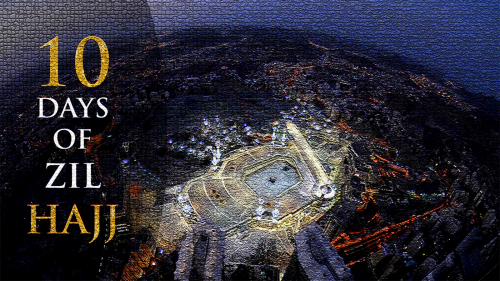Hikmah [Arabic] and Hokhmah [Hebrew]

Both the Qur’an and the Torah frequently refer to wisdom: Hikmah [Arabic] and Hokhmah [Hebrew]. These cognate Arabic and Hebrew terms have been defined as human wisdom’s ability to make correct judgments and decisions, while foreseeing consequences and acting to maximize beneficial results; to make the best use of available knowledge, while thinking and doing what is best in any given situation.
Hikmah ('wisdom') is a positive term used repeatedly [in 19 verses] in the Qur'an as a characteristic of the righteous. “So they [the Children of Israel] defeated them [the Philistines] by permission of Allah, and David killed Goliath, and Allah gave him kingship and wisdom; and taught him from that which He willed. And if it were not for Allah checking [some] people by means of others, the earth would have been corrupted, but Allah is full of bounty to the worlds.” [Qur'an 2:251]
“Or do they envy people for what Allah has given them of His bounty? But we had already given the family of Abraham the Scripture (Torah) and wisdom (the third section of the Hebrew Bible) and conferred upon them a great kingdom (in the Land of Israel)." [Qur'an 4:54]
“When Allah will say, "O Jesus, Son of Mary, remember My favor upon you and upon your mother when I supported you with the Pure Spirit and you spoke to the people in the cradle and in maturity; and when I taught you writing and wisdom and the Torah and the Gospel…”[Qur'an 5:110]
It is also a quality of those who truly understand: “And We had certainly given Luqman wisdom [saying], "Be grateful to Allah ." Whoever is grateful is grateful for himself. And whoever denies [Allah’s favor] - then indeed, Allah is Free of need and praiseworthy.” [Qur'an 31:12].
Note that while Qur’an 4:54 states “we had already given the family of Abraham (the Hebrew Genesis 14:13) Scripture (Torah) and wisdom” Hikmah/Hokhmah/wisdom, Hikmah is also specifically given to non-Jewish Prophets like Luqman.
The Quran itself is referred to as the Wise Quran [Qur'an 36:2]; the Book of Wisdom and the verses of a Book of Wisdom [Qur'an 10:2; Qur'an 13:2] Wisdom is referred to as an integral component of the Message and of the Guidance provided by Divine Revelation ... taught the Book, the wisdom, the Gospel and the Torah [Qur'an 5:110] and Allah Himself is called the Wise One [Qur'an 2:209].
The Torah itself also states that its rules and commandments are the sources of wisdom for the Jewish people: “Look, I [Moses] have taught you statutes and ordinances just as the LORD my God has commanded me, so that you may follow them in the land you are about to enter and possess. Observe them carefully, for this will show your wisdom and understanding in the sight of the peoples, who shall hear of all these statutes and say, “Surely this great nation is a wise and understanding people.” (Deuteronomy 4:5-6)
When Prophet Abraham prayed for the fulfillment of the mission of the prophets, he prayed for one who would "relate scripture to the people, convey hikmah [wisdom] and provide a means of purification." [Qur'an 2:129]
Although thousands of prophets were sent to the thousands of tribes and nations, prophets who spoke to them in their own languages, those prophets descended from Prophet Abraham, “whom God chose to be His friend.” (Qur'an 4:125; Bible, Isaiah 41:8)
All of these were especially given Hikmah/Hokhmah: “We had already given the family of Abraham the Scripture and wisdom.” [Qur'an, 5:54]
Although 'ilm (rational knowledge) may open the doorways to hikmah/hokhmah, it is distinct from 'ilm. Knowledge and information definitely provide a means for wisdom; “Remember Allah's Blessings and [what was] sent through the Book [written revelations] and the wisdom it provides by which you become enlightened.” [Qur'an 2:23]
On the Jewish side, “Wisdom differs from knowledge because wisdom is knowledge, plus acting on that knowledge. One who cannot combine knowledge with action is not called wise," says Elmalılı Hamdi Yazır; and Rabbi Yusef Kimhi says, “Wisdom without action is like a tree without fruit.”
And my favorite, Rabbi Shalomo ibn Gabirol writes; “Don’t be wise with words, be wise in behavior.” Yet we must always remember that wisdom that leads to arrogance or self-righteousness is not true wisdom as the Qur’an states:
“He [God] grants wisdom to whom He pleases; and he to whom wisdom is granted receives a overflowing benefit; but none grasp the message but men of understanding” [Quran 2:269] and “You shall not walk with arrogance on earth …This is of the wisdom inspired to you by your Lord.” [Qur'an 17:37,39]
And in the Hebrew Bible, Prophet Solomon [Arabic, Sulaiman] says: “Be not overly righteous, and do not make yourself too wise.” [Bible, Ecclesiastes 7:16], for, as Rabbi Shalomo ibn Gabirol says: “A man is wise while he seeks wisdom; but when he thinks he knows it all, he becomes a fool.”
And Prophet Solomon adds, “Do you see a man wise in his own eyes? There is more hope for a fool than for him.” [Bible, Proverbs 26:12] Omer Hashikhah relates, “Who is called wise? One who knows his own faults.”
And the Jewish Talmud adds: “Who is wise? One who foresees coming events.” and “Who is wise? One who learns from everyone.”
The Biblical book called Ecclesiastes [in Greek] and Kohelet [in Hebrew] written by Prophet Solomon the son of Prophet David states a wonderful wisdom for all humanity:
“There is a time for everything, and a season for every activity under the heavens:
a time to be born and a time to die, a time to plant and a time to uproot,
a time to kill and a time to heal, a time to tear down and a time to build up,
a time to weep and a time to laugh, a time to mourn and a time to dance,
a time to scatter stones and a time to gather them,
a time to embrace and a time to refrain from embracing,
a time to search and a time to give up, a time to keep and a time to throw away,
a time to tear and a time to mend, a time to be silent and a time to speak,
a time to love and a time to hate, a time for war and a time for peace.” [Ecclesiastes 3:1-8]
















